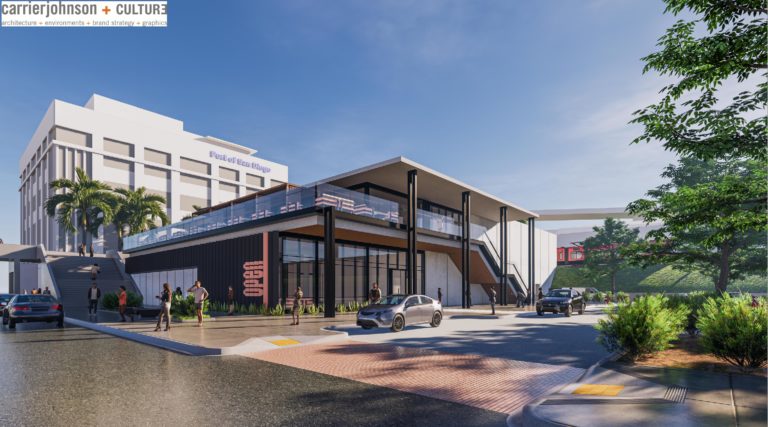
The Venice-based company recently closed a $2 million seed funding round and leased a Venice property to test its model where enclosed pods containing single mattresses are stacked in a room.
Co-founder Steve Shpilsky, who launched Stay Open in 2018, has been developing traditional hotels for more than a decade. He has a background in hotel finance and development.
Over the course of his career, he said, he caught onto issues in the industry that Stay Open aims to address.
“Even pre-Covid being in the world of hotel finance and development and working with the brands, there’s so many hurdles and barriers. It takes a long time and costs a lot of money, and the development process is risky,” Shpilsky said.
One of the most important factors in a hotel’s success is location. Shpilsky said he has spotted empty retail space or offices or churches in locations that would be ideal for a hotel but where a hotel would be expensive and difficult to build.
“I wanted to take traditional real estate and convert it in an efficient manner to a higher and better use,” he said.
He added that he wanted a product that would be more affordable to travelers. That’s how he came up with the idea to take the concept of a youth hostel “and evolve it to 2021.”
Stay Open also comes with a booking app that locates the nearest available pod and shows the types of experiences offered at the property.
“I said, let’s marry that with the availability of real estate, all this empty space,” Shpilsky said. “Hostels are like taxis back in the day, and we’re like the Uber of hostels.”
The company launched in 2018 and is now working on its first projects.
In 2019, Stay Open won a Request for Proposal through the Port of San Diego to convert an old Budget Rent A Car facility into a hotel with more than 240 affordable beds. That project is in the environmental review process now.
In Venice, the company is working to convert a former live-work space at 11 Brooks Ave. that it recently leased to test the pods and showcase the concept, which has proved popular in Japan. It is slated to open as a showroom in April.
The company is also working on bringing pods to some rooms at an old, undisclosed motel in Hollywood that will carry the Stay Open brand name.
Shpilsky said the Stay Open model will make it easier for guests to book a pod or bed and, like in hostels, enable travelers to form connections with others staying at the same location.
He expects guests to prefer pods over traditional hostel bunks because pods offer more privacy as well as sound and light insulation.
They also have an advantage over hotels because pods are moveable and can be set up quickly. Pods can slide into existing rooms, and large shared restrooms can be built instead of individual ones.
“It’s super scalable and super quick to get a room built,” Shpilsky said.
Shpilsky added that Stay Open will generally not own properties but instead be a brand, management and distribution company, similar to many hotels that are branded but owned by independent operators. It will supply its branding and technology platform to operators.
“We can’t own and build all of them. We are creating this brand and technology,” he said. “We’re trying to make the franchise model of hospitality simpler.”
And despite Covid making it hard for people to travel or gather in groups, Shpilsky said he’s confident that once everyone has been vaccinated, there will be demand for pod hotels as people want to visit fun areas in affordable ways. The pods in a shared room, he said, would cost $50.
Shpilsky expects the Stay Open brand to have close to 30,000 beds around the world within five years.
